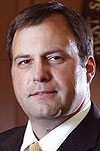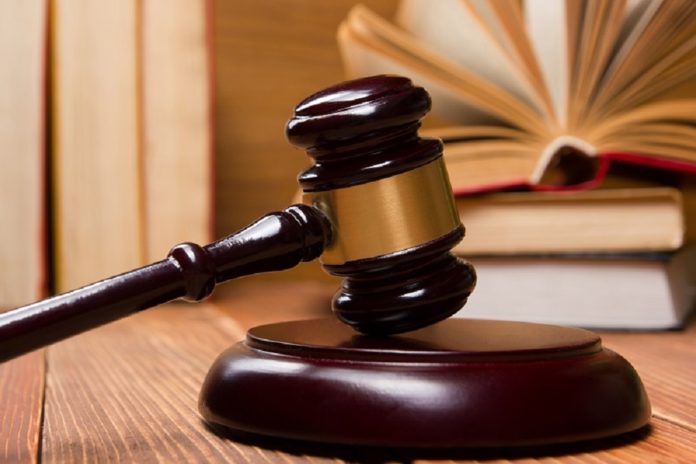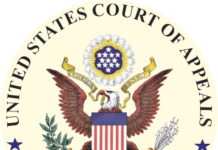Kansas prosecutors have come up with a plan for relieving a backlog of court cases that stalled when the COVID-19 pandemic hit the state, although one Democratic lawmaker questions whether it’s constitutional.
A draft bill introduced in the Legislature this week would suspend the state’s speedy-trial deadline until May 1, 2024, in all criminal cases filed before the legislation’s start date.
It also would repeal the right to a speedy trial in state law, but would not affect the Sixth Amendment right to a speedy trial afforded by the U.S. Constitution.
The state speedy-trial statute, which sets a 150-day deadline for holding trials for defendants who are in custody, would be repealed after the effective date of the bill.
The bill was brought on behalf of the Kansas County and District Attorneys Association.
State law currently gives the chief justice of the state Supreme Court the latitude to suspend judicial deadlines during an emergency disaster declaration.
The legislation would mean that the speedy-trial statute could be waived regardless of whether there is an emergency declaration in place.
The law put Republican lawmakers who opposed the governor’s request to extend the declaration in a bind for fear that they could end up risking the dismissal of hundreds of criminal cases if the extension wasn’t approved.

“Our thought was, ‘Why don’t we just take speedy trial out of the equation and just say speedy trial is suspended for a period of time?'” said Sedgwick County District Attorney Marc Bennett.
“It gives us a couple years to work down this backlog that built up over the last 10 months,” Bennett said.
The current emergency disaster declaration ends Jan. 26, although the Legislature is working toward extending the declaration to give lawmakers time to rewrite the state’s emergency management law.
Courts across the state are working to clear a backlog of cases that built up when jury trials were halted earlier this year to comply with efforts to slow the spread of COVID-19.
While courts have been processing cases during the pandemic, they have generally not conducted jury trials since March with some exceptions.
State law sets a 150-day requirement for holding trials for defendants who are in custody and 180 days for those who are out of custody.
If the emergency declaration lapses, prosecutors would be under a tight deadline to try cases for defendants now being held or risk having them dismissed.
The bill would give the courts more room to move through their backlog, which varies from judicial district to judicial district.
Back in March when Chief Justice Marla Luckert initially suspended speedy-trial deadlines, there were at least 1,777 criminal cases set for jury trial statewide.
While some cases have been settled, the bulk of them have been or will need to be rescheduled while still more are being filed, Luckert told lawmakers last fall.
On May 1, as state and local stay-at-home orders were lifted, the chief justice directed judicial districts to develop plans for resuming in-person court proceedings following public health guidelines for COVID-19.
At the end of May, the chief justice signed an order allowing courts to convene grand
juries and jury trials if necessary to preserve the constitutional right to a speedy trial so long as they met public health restrictions.
In August, Luckert signed an order requiring each judicial district to submit a plan for resuming jury trials to the Office of Judicial Administration.
The office was to review the plans to ensure they adhered to the Supreme Court’s guidance and mandates for resuming jury trials with health precautions in place.
Many courts with approved plans are scheduling jury trials, said Lisa Taylor, a spokeswoman for the Supreme Court and the Office of Judicial Administration.
“However, trials are sometimes canceled at the last minute when a person critical to the case, such as an attorney or witness, contracts COVID-19 or is exposed to it and must quarantine,” she said in an email.
Luckert declined comment through a spokeswoman.
Democratic state Rep. John Carmichael, a member of the House Judiciary Committee, expressed concerns about whether the bill complied with the U.S. Constitution.

“Speedy-trial rights are important rights,” the Wichita lawmaker said.
“Folks should not sit in jail waiting trial for weeks, months and, under this statute, years before they get their day in court,” he said.
The bill goes beyond the court backlog by repealing a state law that sets a speedy trial requirement beyond the protections in the U.S. Constitution.
Unlike the expansively worded U.S. Constitution, the state law sets specific deadlines.
The Sixth Amendment says in all criminal prosecutions, the “accused shall enjoy the right to a speedy and public trial, by an impartial jury of the state and district wherein the crime shall have been committed…”
Bennett pointed to a homicide case in Douglas County where a conviction of a Eudora man was dismissed for violating the state’s speedy trial law.
Last year, the Kansas Court of Appeals dismissed the case against Danny W. Queen, who had been sentenced to nearly 19 years in prison for second-degree murder because his trial was set to start three days after the deadline.
Bennett called the deadline established by the state speedy-trial law “arbitrary.”
“The membership of the D.A.’s association has been asking for us to do away with this statutory speedy trial because we still have all of the Constitutional protections,” he said.
“There is a whole litany of case law at the federal level that protects people’s right to a speedy trial,” he said.
“You leave it up to the judges and the judges follow the Constitution and that should be sufficient.”
Carmichael called the proposed legislation “very disturbing.”
“While I know a lot of us are pro-law enforcement and law-and-order people,” he said, “when the power of the prosecutor is turned against an individual, that individual has an absolute constitutional right – even out of fairness – to have a trial so they can defend their good name so they can go on with their lives.
“Not everyone charged with a crime is guilty,” he said. “If they were, we wouldn’t need courts.”
















